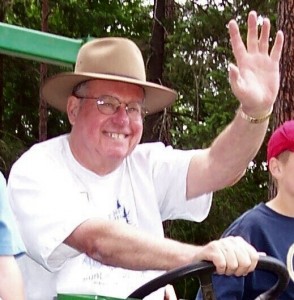Read an excerpt from this article below. You can download the full article by using the link at the end of the excerpt.
An Absence Still Felt
Two years after his death, Reeve Hennion’s absence is still felt on the planning commission he chaired in Jackson County, Oregon. “The perfect planning commissioner,” says Planning Director Kelly Madding. “Fabulous,” says Alwin Turiel, a former planning director. “A mentor for me and for many people,” says Don Greene, who chairs the commission now. “He was extraordinary,” adds Sue Kupillas, a county commissioner.
A quiet man who spent most of his life in journalism before starting two companies, Hennion fell in love with planning and land use issues after moving to Jackson County in the 1980s. His wife, Lyn, thinks it was because planning combined two of his interests, geography and the law. “If he hadn’t been a journalist, he would have been a Supreme Court justice,” she says. He was so devoted to the planning commission that, days before he died, he watched a commission meeting on television from his sick bed.
What makes Hennion interesting, though, isn’t the affection people still feel for him, but the impact he had on his community. During his 12 years on the planning commission, Jackson County grew rapidly and changed politically, socially, and economically.
In many places, the tensions over these kinds of changes would have erupted into monumental zoning battles, as people fought over land use as a proxy for other community disagreements. Jackson County certainly had the potential for these kinds of battles — “nothing has ever had more land mines” than land use disputes in Southern Oregon, County Commissioner Kupillas says. The fact that the land mines didn’t go off, in many ways, can be attributed to a single person, Reeve Hennion.
Leadership and Planning Commissions

In most places, citizen planners have two primary roles: to do responsible community planning and to render fair judgments on specific projects. (In some places, the planning commission oversees the planning department, which gives it a management function as well.) Most good commissioners are admired, then, for their farsightedness and fairness, not their ability to create change.
In some communities, leadership comes from traditional sources: elected officials and individuals who are deeply involved in civic work, such as chamber executives, business leaders, neighborhood activists, and nonprofit officials. Change in these places comes slowly or predictably enough that it can be managed by existing leaders working in the usual ways.
But other places are different. They get changes so fast or unpredictably that the normal political and civic processes can’t keep up. Or they have the reverse situation, where there’s not enough change and the community gets stuck, fighting old, increasingly irrelevant battles or doing nothing at all as progress passes it by.
What’s needed in either case is something new: a new way of decision making or a new set of ideas to get the community moving forward. …
End of excerpt